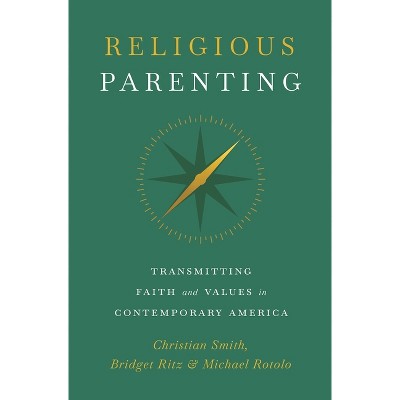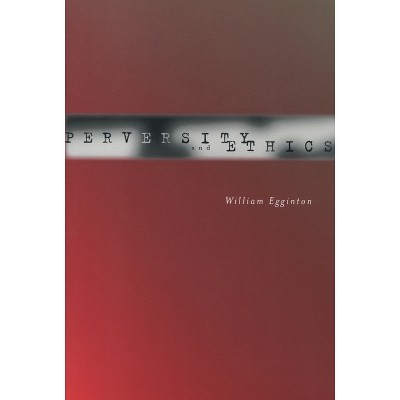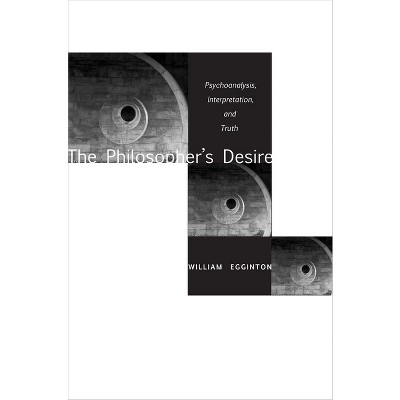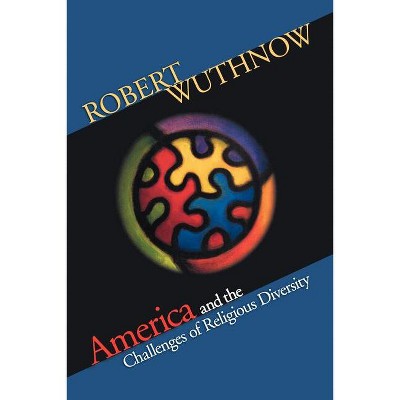In Defense of Religious Moderation - by William Egginton (Paperback)

$27.00 when purchased online
Target Online store #3991
About this item
Highlights
- In his latest book, William Egginton laments the current debate over religion in America, in which religious fundamentalists have set the tone of political discourse--no one can get elected without advertising a personal relation to God, for example--and prominent atheists treat religious belief as the root of all evil.
- About the Author: William Egginton is Andrew W. Mellon Professor in the Humanities and director of the Alexander Grass Humanities Center at the Johns Hopkins University.
- 176 Pages
- Social Science, Sociology of Religion
Description
Book Synopsis
In his latest book, William Egginton laments the current debate over religion in America, in which religious fundamentalists have set the tone of political discourse--no one can get elected without advertising a personal relation to God, for example--and prominent atheists treat religious belief as the root of all evil. Neither of these positions, Egginton argues, adequately represents the attitudes of a majority of Americans who, while identifying as Christians, Jews, and Muslims, do not find fault with those who support different faiths and philosophies. In fact, Egginton goes so far as to question whether fundamentalists and atheists truly oppose each other, united as they are in their commitment to a "code of codes." In his view, being a religious fundamentalist does not require adhering to a particular religious creed. Fundamentalists--and stringent atheists--unconsciously believe that the methods we use to understand the world are all versions of an underlying master code. This code of codes represents an ultimate truth, explaining everything. Surprisingly, perhaps the most effective weapon against such thinking is religious moderation, a way of believing that questions the very possibility of a code of codes as the source of all human knowledge. The moderately religious, with their inherent skepticism toward a master code, are best suited to protect science, politics, and other diverse strains of knowledge from fundamentalist attack, and to promote a worldview based on the compatibility between religious faith and scientific method.Review Quotes
A literary rally to restore sanity in religion.... temperate and thoughtfully researched.-- "Kirkus Review"
Egginton's book is a very useful resource for survey or elective undergraduate courses. Highly recommended.-- "Choice"
This treatise is no easy read, but the conclusion is a comfort: People of faith must be tolerant.-- "Star-Ledger"
The argument made by William Egginton on behalf of religious moderation is a clear, nuanced, and important one. It shows how the critique of religion offered by well-known atheist authors is guilty of the same fundamentalist logic of which they are so critical. Egginton writes with great ease and clarity, and his many examples drawn from legal cases, popular culture, and his own personal experience will resonate with readers.--Jeffrey Robbins, Lebanon Valley College, author of Radical Democracy and Political Theology
William Egginton has produced an up-to-date account of the political nature of religion to remind us all that Samuel Huntington's clash of religious civilizations may not only be contrasted by religious moderation but also actually avoided. Following on Richard Rorty's and Gianni Vattimo's postmetaphysical weak thought, Egginton dismantles theistic, atheist, scientific, and philosophical arguments that try to accuse such moderate faith of irrationalism, relativism, or nihilism. A genuine must-read for all those concerned with the violent religious groups emerging in our societies.--Santiago Zabala, ICREA/University of Barcelona, author of The Remains of Being: Hermeneutic Ontology After Metaphysics
About the Author
William Egginton is Andrew W. Mellon Professor in the Humanities and director of the Alexander Grass Humanities Center at the Johns Hopkins University. He is the author of The Man Who Invented Fiction: How Cervantes Ushered In the Modern World (2016); The Theater of Truth: The Ideology of (Neo)Baroque Aesthetics (2009); A Wrinkle in History (2007); The Philosopher's Desire: Psychoanalysis, Interpretation, and Truth (2007); Perversity and Ethics (2005); and How the World Became a Stage (2002).Dimensions (Overall): 7.9 Inches (H) x 5.2 Inches (W) x .6 Inches (D)
Weight: .55 Pounds
Suggested Age: 22 Years and Up
Number of Pages: 176
Genre: Social Science
Sub-Genre: Sociology of Religion
Publisher: Columbia University Press
Format: Paperback
Author: William Egginton
Language: English
Street Date: June 28, 2016
TCIN: 91093862
UPC: 9780231148795
Item Number (DPCI): 247-30-0225
Origin: Made in the USA or Imported
If the item details aren’t accurate or complete, we want to know about it.
Shipping details
Estimated ship dimensions: 0.6 inches length x 5.2 inches width x 7.9 inches height
Estimated ship weight: 0.55 pounds
We regret that this item cannot be shipped to PO Boxes.
This item cannot be shipped to the following locations: American Samoa (see also separate entry under AS), Guam (see also separate entry under GU), Northern Mariana Islands, Puerto Rico (see also separate entry under PR), United States Minor Outlying Islands, Virgin Islands, U.S., APO/FPO
Return details
This item can be returned to any Target store or Target.com.
This item must be returned within 90 days of the date it was purchased in store, shipped, delivered by a Shipt shopper, or made ready for pickup.
See the return policy for complete information.
Trending Poetry

Bestseller
$24.48
MSRP $35.00
Buy 2, get 1 free select books, movies, music & Funko
4.7 out of 5 stars with 26 ratings

Bestseller
$14.39
Buy 2, get 1 free select books, movies, music & Funko
3.8 out of 5 stars with 62 ratings

$22.80
was $26.60 New lower price
Buy 2, get 1 free select books, movies, music & Funko
5 out of 5 stars with 4 ratings

$23.09
Buy 2, get 1 free select books, movies, music & Funko
4.4 out of 5 stars with 11 ratings

$23.09
Buy 2, get 1 free select books, movies, music & Funko
4 out of 5 stars with 16 ratings

Highly rated
$9.85 - $23.09
MSRP $15.99 - $32.99
Buy 2, get 1 free select books, movies, music & Funko
4.8 out of 5 stars with 137 ratings





